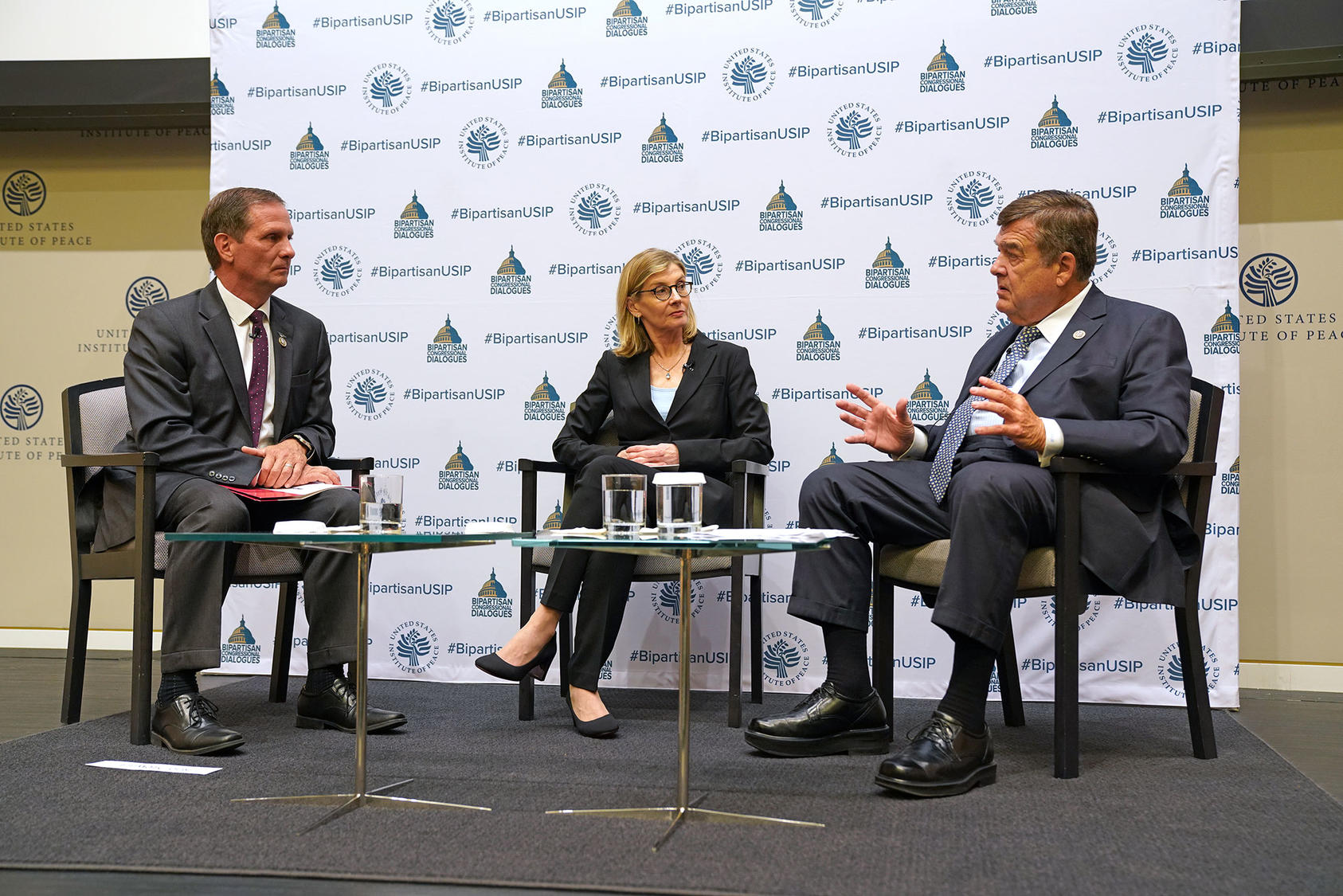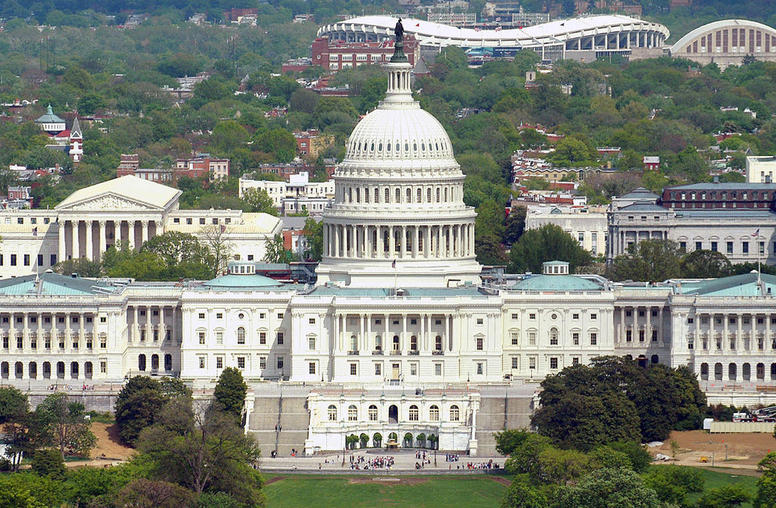America’s Vital Needs on China Policy: Realism and Strategy
A Bipartisan Dialogue on a Rising National Security Challenge
As U.S. national security debates focus heavily on the growing power and ambitions of China, two prominent members of Congress discussed how bipartisan policymaking can better protect America’s interests. Representatives Chris Stewart (R-UT) and Dutch Ruppersberger (D-MD) emphasized a need for strong engagement in Washington between the political parties, and for focused U.S. attention on China’s military buildup, intellectual property theft and cyber activities. Both congressmen are members of the House of Representatives subcommittee that oversees the U.S. foreign affairs budget, and both have played leading roles on national security and intelligence issues.

Stewart and Ruppersberger spoke at the sixth of USIP’s Bipartisan Congressional Dialogues. The Institute launched the series “to provide a platform for members of Congress who are working from opposite sides of the aisle … with the goal of advancing our national security interests,” said USIP President Nancy Lindborg. She told the audience: “We’ve found that, despite what you’re reading in the papers, there is a strong, genuine effort on the Hill to advance these critical issues for our national security.” Ruppersberger and Stewart have been leaders in sustaining that approach, she said.
USIP, which was founded by Congress, also sponsors a series of bipartisan Senior Study Groups that examine China's influence on conflicts around the world and generate recommendations for U.S. policies to better account for China's impact. The first group's report, “China’s Role in Myanmar’s Internal Conflicts,” has just been published.
The Challenge of China
Lindborg, noting the increased focus on China in the current U.S. National Security Strategy, asked the legislators for an overview.
Stewart cited Harry Harris, the retired U.S. Navy admiral who is now America’s ambassador to South Korea. “He said North Korea is the most imminent challenge” and Russia “is the only existential threat that we face, but China is the most complicated,” Stewart told the audience. “I think that’s true.”
The United States must be prepared to change its thinking to more realistically assess new risks, he urged. “One of the other great threats that we face … is that no one knows what is true anymore” amid overheated arguments, said Stewart, a former Air Force pilot who also serves on the House Permanent Select Committee on Intelligence. “We have to be able to deal with this issue in an honest way, when we actually have data and it’s not just emotion.”
Ruppersberger concurred on the scale of China’s challenge to U.S. strengths in military, cyber and space technologies, stressing that much of China’s progress has come through theft. “A lot of what China has received, and it’s worth billions of dollars, is they’ve stolen for many, many years a lot of our technology,” said Ruppersberger. He also served on the intelligence committee for 12 years until 2014, becoming the committee’s ranking minority member.
Both congressmen said the United States must do a better job of protecting its technologies from theft that, Stewart noted, has let China skip entire generations of weapons development. He cited China’s expansion of its naval capabilities, including hypersonic missiles that pose a new threat to U.S. aircraft carriers. “It complicates our strategy enormously,” he said.
The Trade War
To an online listener who queried via Twitter, Ruppersberger and Stewart agreed that the United States was forced to confront China over its trade practices. Both emphasized the need for doing so with a broad, far-sighted strategy.
“If we are engaged in a long-term, strategic, committed trade war with China, we will win that,” said Stewart. “But there’s going to be casualties along the way. I’ve had more conversations about this over the last six months than any other single subject with constituents back home.”
“We’re going down a dangerous road with trade” in what has been a series of punches and counterpunches, said Ruppersberger. “Eventually they’ve got to stop punching and start talking.” He urged the United States to marshal its trade expertise to frame a strategy for negotiations: “Let’s get the experts involved now who know this science.”
A U.S.-Chinese Future
Asked about areas for U.S.-Chinese cooperation, Ruppersberger responded: “Let’s talk about the environment.” China’s worsening air pollution has built an increasing realization among its leaders that “they had to do something.” The United States can help with that problem, and in education, where Chinese regard the U.S. university system as superior, Ruppersberger said. “Another area is infrastructure” development, he said.
On the future of the U.S.-China relationship, Stewart added: “As long as we look at it through a realistic prism, I’m not predicting doom. But I’m suggesting the U.S. has to be firm,” recognizing that China’s leadership does not share a commitment to democratic values. Coexistence is possible, he said, “but we have to manage a real difficult path forward.”




